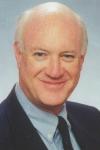Request For Comments (RFC’s) >
 |
 |
| – Steve Crocker | – Jon Postel |
|
Most of us were graduate students and we expected that a professional crew would show up eventually to take over the problems we were dealing with… We had accumulated a few notes on the design of DEL and other matters, and we decided to put them together in a set of notes… The basic ground rules were that anyone could say anything and that nothing was official. And to emphasize the point, I labeled the notes ‘Request for Comments.’ I never dreamed these notes would be distributed through the very medium we were discussing in these notes.
– Stephen Crocker, The Request For Comments Reference Guide, RFC 1000, Aug. 1987. |
RFC’s were invented by Steve Crocker to help provide a record of the Network Working Group’s design of the ARPANET.
In 1968, as the ARPANET program progressed, representatives from various DARPA sites began to meet regularly to progress their plans. As more and more people began to attend, they named themselves the Network Working Group (NWG), although the group had no formal charter, membership, or organization — laying the foundation for later formation of similar Internet bodies like the IETF. Steve Crocker volunteered to organize the NWG notes. At an ARPA meeting in March, 1969 in Utah, Crocker created the first Request For Comments document, titled “Host Software”, RFC 001, to document the work of the NWG. (Crocker is also known for development of the first ARPANET network protocol, the Network Control Program.)
The RFC’s turned out to provide a convenient, useful vehicle for documentation and distribution of the research performed by the developers of the Internet, and ended up becoming the official record of the Internet’s design decisions, architecture, and technical standards. Although they remained titled “Request For Comments”, by consensus they are the Internet documents of record, and often include very detailed technical information.
Jon Postel, Director of the Computer Networks Division at the Information Sciences Institute at the University of Southern California, took over stewardship of the RFC’s in the early 1970’s. He served as the official RFC Editor for a quarter of a century, and authored and led development of more RFC’s than anyone else. He also helped develop many of the Internet protocols, including the Domain Name System, File Transfer Protocol, Telnet, and the Internet Protocol itself.
Joyce K. Reynolds was drafted by Postel in 1983 to help with the increasing workload of the RFC Editor and IANA management, and continues in that role today. Another indefatigable contributor to the Internet, Reynolds has also been a member of the IETF, helped develop the Experimental Multimedia Mail System, Post Office Protocol, and Telnet Option Specifications, helped update the File Transfer Protocol, and established the RFC documents published as FYIs.
Robert Braden also made substantial contributions to the RFC’s. He chaired the IRTF End-to-End Research Group which developed many key RFC’s, and served as the RFC co-editor for the IETF. He has authored many RFC’s himself, and his leadership of the two milestone documents RFC 1122 and RFC 1123, Requirements for Internet Hosts, made an enormous contribution to clear communication of the Internet standards. Braden also helped develop several of the Internet protocols, including FTP, RSVP, and the Internet Protocol. He was a charter member of the IAB, and later served as its Executive Director.
Elizabeth (Jake) Feinler also worked with Postel and Reynolds and played a key role in the middle years of the RFC series as lead of the Stanford Research Institute Network Information Center, with responsibility for distributing RFC’s both online and on paper.
Resources. RFC 2555, 30 Years of RFC’s, provides a history of the RFC’s, with input from Steve Crocker, Joyce Reynolds, Vinton Cerf, Jake Feinler, and Bob Braden.